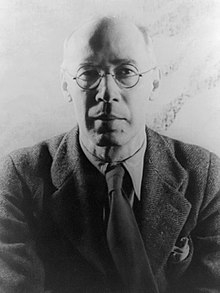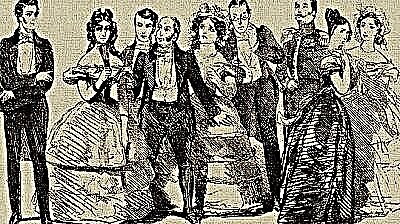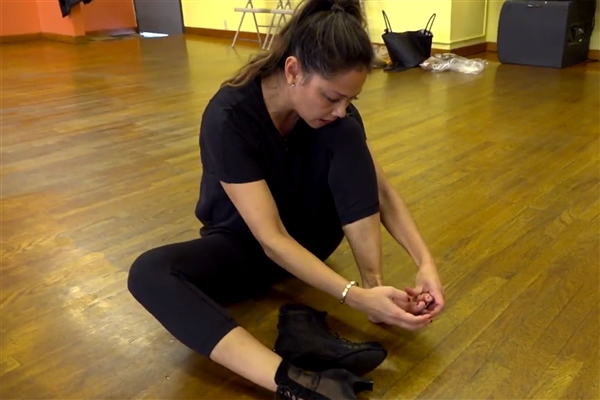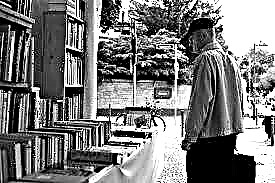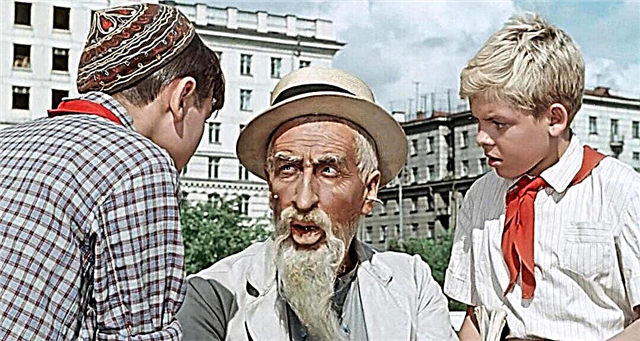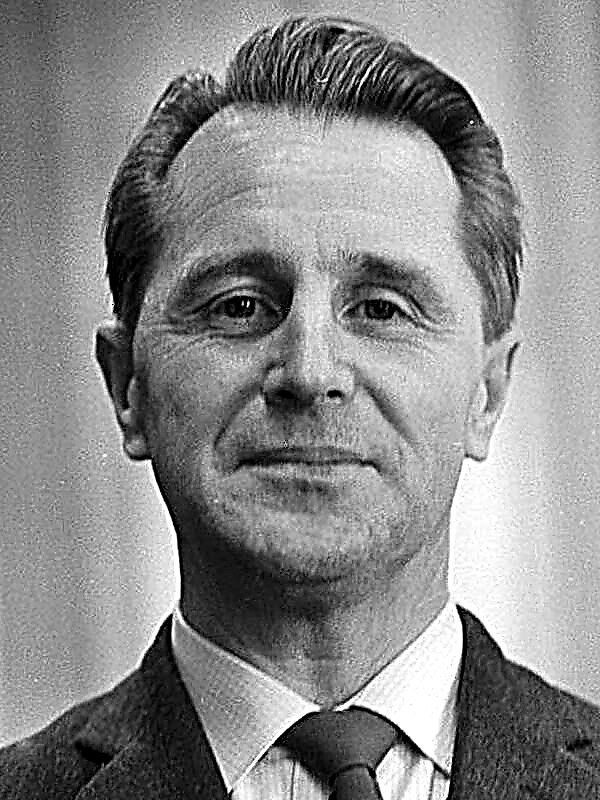The essence of the event is dispassionately set forth in the very first phrase of the work. Waking up on his thirtieth birthday, Joseph K. discovers that he is under arrest.
Instead of a maid with the usual breakfast, an unfamiliar gentleman in black enters his call. In the next room are a few other strangers. They politely inform K., taken by surprise, that "the beginning of his case has been laid and that he will know everything in due time." These uninvited people who invaded his dwelling both laugh and outrage and amaze K., who does not feel any guilt. He does not doubt for a minute that the incident is nothing more than a wild misunderstanding or a crude joke. However, all his attempts to find out something run into impenetrable courtesy. Who are these people? What department are they from? Where is the warrant for his arrest? Why in a state of law, "where peace reigns everywhere, all laws are unshakable," is such arbitrariness allowed? Condescending answers are given to his annoyed questions that do not clarify the merits.
The morning ends with visitors offering K. to go, as always, to his service at the bank, because, as they say, only a preliminary investigation is being conducted on his case and he can fulfill his duties and generally lead a normal life. It turns out that among the strangers who carried out the arrest of K. there are three of his colleagues in the bank - so colorless that K. himself did not even recognize them at first. They accompany him in a taxi to the bank, keeping a calm, polite silence.
Until now, K. had every reason to consider himself a lucky person, since he held a strong, solid position. In a large bank, he worked as a prosecutor, he had a spacious office and many assistants at his disposal. Life flowed quite calmly and measuredly. He was respected by both his colleagues and his hostess at the boarding house, Frau Grubach. When K. returned home after work, it was with Frau Grubach that he first cautiously spoke about the morning visit and was very surprised that she was up to date. She advised K. not to take the incident to heart, try not to harm herself, and at the end of the conversation she shared with her the assumption that there was something “scientific” in his arrest.
Of course, K. was not going to take the incident seriously anyway. However, in addition to his will, he experienced some confusion and excitement. Otherwise, how could he have committed a very strange act that evening? Insisting on an important conversation, he went into the room to a surprised young neighbor in a boarding house, and the matter ended up being passionately kissing her, which he would never have allowed before.
It takes a few days. K. works hard at the bank and tries to forget the stupid case. But he was soon informed by telephone that a preliminary investigation was scheduled on Sunday in his case. The form of this message is again very courteous and helpful, although nothing is still clear. On the one hand, they explain to him: everyone is interested in ending the process as soon as possible, on the other, it is an extremely complicated matter, and therefore the investigation should be conducted with all care. in thoughtfulness, he remains to stand by the phone, and in this position he is caught by the deputy director - his long-standing hidden ill-wisher.
On Sunday, K. gets up early, carefully dresses and goes to the outskirts at the specified address. He wanders for a long time in nondescript working districts and cannot find the right place. Quite unexpectedly, he discovers the purpose of his visit to one of the poor apartments. A woman washing clothes lets him into a hall full of people. All faces are erased, inconspicuous and dull. People even stand in the gallery. The man on the stage strictly tells K. that he was late for an hour and five minutes, to which the confused hero mumbles, that he nevertheless came. After that K. stands forward and decisively begins to speak. He is committed to ending this obsession. He denounces the methods by which the so-called investigation is conducted, and laughs at the miserable notebooks that pass as documentation. His words are full of persuasiveness and logic. The crowd meets them with laughter, then with a murmur, then with applause. The room is filled with dense children. Having finished his angry monologue, K. takes his hat and leaves. No one is stopping him. Only at the door the investigator, who was silently hostile before, draws K.'s attention to the fact that he deprived himself of his “advantage” by refusing to interrogate. in response, he laughs and in his hearts calls him scum.
Another week passes, and on Sunday, not waiting for a new call, K. himself leaves for a familiar address. The same woman opens the door for him, saying that there is no meeting today. They enter into a conversation, and K. finds out that the woman is aware of his process and is outwardly full of sympathy for him. She turns out to be the wife of some judicial officer, who, without great moral torment, cheats on anyone. suddenly feels that he is inevitably attracted to her. However, the woman eludes him with some student who suddenly appeared in the room. Then, the couple who has disappeared is replaced by a deceived husband-servant who does not lament at all about the spouse's windiness. And this type also turns out to be completely dedicated to the process. And he is ready to give K. useful advice, citing his rich experience. he calls the accused and kindly offers him, if he is in no hurry, to visit the office. And so they climb the stairs and go in some long dark passages, they see behind bars the officials sitting at the tables, and rare visitors waiting for something. “Nobody straightened upright, their backs slouched, their knees bent, people stood like beggars.” All these were also accused, as K. himself
Going to leave this dull institution, K. on the stairs suddenly experiences a previously unknown attack of instant swooning weakness, which she overcomes with effort. Has his body really rebelled, a thought flashed through him, and a different life process takes place in him, not the same one that proceeded with such ease? ..
In fact, everything is even more complicated. Not only health, but also the psyche, and K.'s entire lifestyle, as a result of strange events, inevitably, although imperceptibly, change. As if these changes are not obvious, but with the inexorability of rock, K. plunges into a strange, viscous, independent of his will and desire Something, called in this case the Process. This process has its own move, its own underlying logic, hidden from the understanding of the hero. Without revealing the essence, the phenomenon appears to K. with its small particulars, eluding his stubborn attempts to understand something. For example, it turns out that although K. is trying not to tell anyone about his process, for some reason everyone around him is aware of what is happening - work colleagues, boarding house neighbors, and even random people they meet. This strikes K. and deprives him of his former confidence. It also turns out that completely different people were somehow involved in the process, and as a result K. himself began to suspect any of those around him.
Incredible things are happening. So, once, having been late in the service until late, K. in the corridor hears sighs coming from the pantry. When he jerks open the door, then, not believing his eyes, he discovers three bent men. One of them is the executor, and two are punished with rods. Moreover, as they, whining, explain, the reason for flogging - K., who complained to them to the investigator in the same accusatory speech. In front of the amazed K., the executor begins to shower the unfortunate with blows.
Another important detail of what is happening. Everyone K. encounters in this story treats him with emphatically polite and Jesuit precautions, everyone readily enters into explanations, and as a result it turns out that everything can be explained and understood separately, while the whole is more and more hidden under the cover of a absurdity. Particulars replace the whole, completely confusing the hero. forced to deal only with small performers who willingly tell him about their own problems and who appear to be innocent in what is happening, and the highest authorities, who he considers responsible for everything, remain unknown and inaccessible to him. He fights with a certain system, into which he himself is irreparably inscribed.
So he moves around the circles of his process, dragging himself into the funnel of strange and faceless procedures, and the more he seeks to defend himself, the more he harms his own cause. Once a relative comes to his service - an uncle who came from the province. As one would expect, uncle has also heard about the process and is terribly concerned. He persistently drags K. to his friend's lawyer, who should help. The lawyer is sick, he takes uncle and K. in bed. Of course, he is also more than aware of the trouble that befell K. The lawyer is looked after by a lively young nurse named Leni. When K. leaves the room during a long and boring conversation, Leni carries him to his office and right there, on the carpet, seduces him. Uncle indignantly chastises his nephew when, after a while, he and K. leave the lawyer's house, - again K. hurt himself, because it was impossible not to guess the reason for his long absence from the room. However, the lawyer does not at all refuse K.'s defense. And he comes to him many times and meets with Leni waiting for him - she willingly gives K. her affection, but this does not make the hero closer. Like the other women in this novel — including the little sassy nymphs emerging in one episode — she is crafty, fickle, and annoyingly, painfully vicious.
K. loses peace. At work, he is distracted, gloomy. Now, fatigue does not leave him, and in the end he is overcome by a cold. He is afraid of visitors and begins to get confused in business papers, horrified that he gives cause for discontent. The deputy director has long been looking at him. One day K. is assigned to accompany some visiting Italian. Despite his malaise, he drives up to the central cathedral, where an appointment is made. There is no Italian. enters the cathedral, deciding to wait here for rain. And suddenly, in a solemn twilight, a stern voice called out under the arches called out to him by name. The priest, who calls himself the chaplain of the prison, demands K. to ask questions and reports that things are not going well with his process. obediently agrees. He already understands this himself. The priest tells him a parable about the supreme Code of Laws and, when K. tries to challenge its interpretation, instructively inspires him that "you only need to realize the necessity of everything."
And so a year passed and evening came on the eve of K.'s next birthday. About nine o’clock two gentlemen in black came to his apartment. as if expecting them - he was sitting on a chair by the door and slowly pulled on gloves. He saw no reason to show any resistance, although until the last he felt ashamed of his own humility.
They silently left the house, went through the whole city and stopped at an abandoned small quarry. They removed a jacket and shirt from K. and laid their heads on a stone. At the same time, the gestures and movements of the guards were extremely helpful and courteous. One of them took out a sharp knife. from the edge of consciousness, I felt that I myself had to grab this knife and stick it into myself, but he lacked the strength to do this. His last thoughts were about a judge whom he had never seen before - where is he? Where is the high court? Perhaps some other arguments that could save his life have been forgotten? ..
But at that moment the hands of the first lord had already laid on his throat, and the second thrust a knife deep into his heart and turned twice. “K.'s extinct eyes saw how both gentlemen at his very face, clinging his cheek to his cheek, watched the denouement. “Like a dog,” he said, as if this shame was destined to survive him. ”

